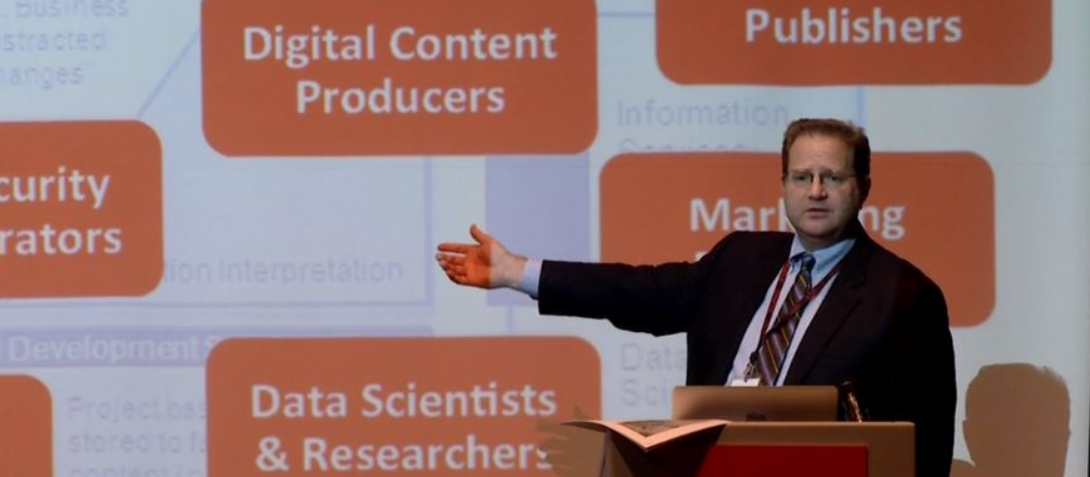In recent weeks my Facebook "wall" has started to yield a treasure-trove of high-school era picture, stories and flashbacks, including associations of names to groups, events and interests I never then fully appreciated - but do now.
A few years back, I was addressing a US National Archives program called the "Electronic Records Archives" (ERA), a program aimed at improving the nation's ability to "indefinitely" (i.e. even after Google and Microsoft go out of business in the year 3000) preserve government electronic records - including emails, online chat, digital photos, video and other data. One of the key challenges was promoting this program to users and organizations, and coming up with ways to encourage authors and managers of electronic records to identify, tag and contribute items to the records management system (to ultimately be assessed and possibly saved "forever" in the ERA system).
Facebook is apparently the new "National Archives For the Rest of Us", for non-government, social media records. It's easy to "tag" items with various metadata, and it's easy to associate items by various taxonomies and folksonomies, organized for example by social networks, family-groups or subject-matter. Conversation threads are preserved, and can be "mined" for additional data and linkages. Contributors are encouraged and even driven to harvest, describe and post previously unseen data (some which probably should remain unseen) - by all kinds of social, family or friendly pressures or interests. "Official" social and family records are being created in a crowd-sourced environment that values, rewards and encourages records management techniques and promises some degree of digital preservation (assuming Google or The Wayback Machine's cache of Facebook lasts even longer than Facebook itself - and Facebook is now hosting the National Archives, it seems).
As an online digital archive, Facebook is also simply an interactive "time machine" of sorts, that seems to become really entertaining as material begins to surface that's over 25 years old (or "antique" in automobile terms). Like satellite radio (which all of a sudden offered access to songs you hadn't heard in 30 years), Facebook offers access to "time capsules" of photos, letters and relationships that had been boxed up and stuck under beds at childhood homes.
However, I'll point out that as the National Archives does categorize material according to sensitive security classifications (i.e. "Top Secrect" and the like); so too might it be worthwhile for individuals to observe similar categorizations or "personal classifications" for material they would consider archiving with (forever) in Facebook, but probably shouldn't.
A few years back, I was addressing a US National Archives program called the "Electronic Records Archives" (ERA), a program aimed at improving the nation's ability to "indefinitely" (i.e. even after Google and Microsoft go out of business in the year 3000) preserve government electronic records - including emails, online chat, digital photos, video and other data. One of the key challenges was promoting this program to users and organizations, and coming up with ways to encourage authors and managers of electronic records to identify, tag and contribute items to the records management system (to ultimately be assessed and possibly saved "forever" in the ERA system).
Facebook is apparently the new "National Archives For the Rest of Us", for non-government, social media records. It's easy to "tag" items with various metadata, and it's easy to associate items by various taxonomies and folksonomies, organized for example by social networks, family-groups or subject-matter. Conversation threads are preserved, and can be "mined" for additional data and linkages. Contributors are encouraged and even driven to harvest, describe and post previously unseen data (some which probably should remain unseen) - by all kinds of social, family or friendly pressures or interests. "Official" social and family records are being created in a crowd-sourced environment that values, rewards and encourages records management techniques and promises some degree of digital preservation (assuming Google or The Wayback Machine's cache of Facebook lasts even longer than Facebook itself - and Facebook is now hosting the National Archives, it seems).
As an online digital archive, Facebook is also simply an interactive "time machine" of sorts, that seems to become really entertaining as material begins to surface that's over 25 years old (or "antique" in automobile terms). Like satellite radio (which all of a sudden offered access to songs you hadn't heard in 30 years), Facebook offers access to "time capsules" of photos, letters and relationships that had been boxed up and stuck under beds at childhood homes.
However, I'll point out that as the National Archives does categorize material according to sensitive security classifications (i.e. "Top Secrect" and the like); so too might it be worthwhile for individuals to observe similar categorizations or "personal classifications" for material they would consider archiving with (forever) in Facebook, but probably shouldn't.

Comments